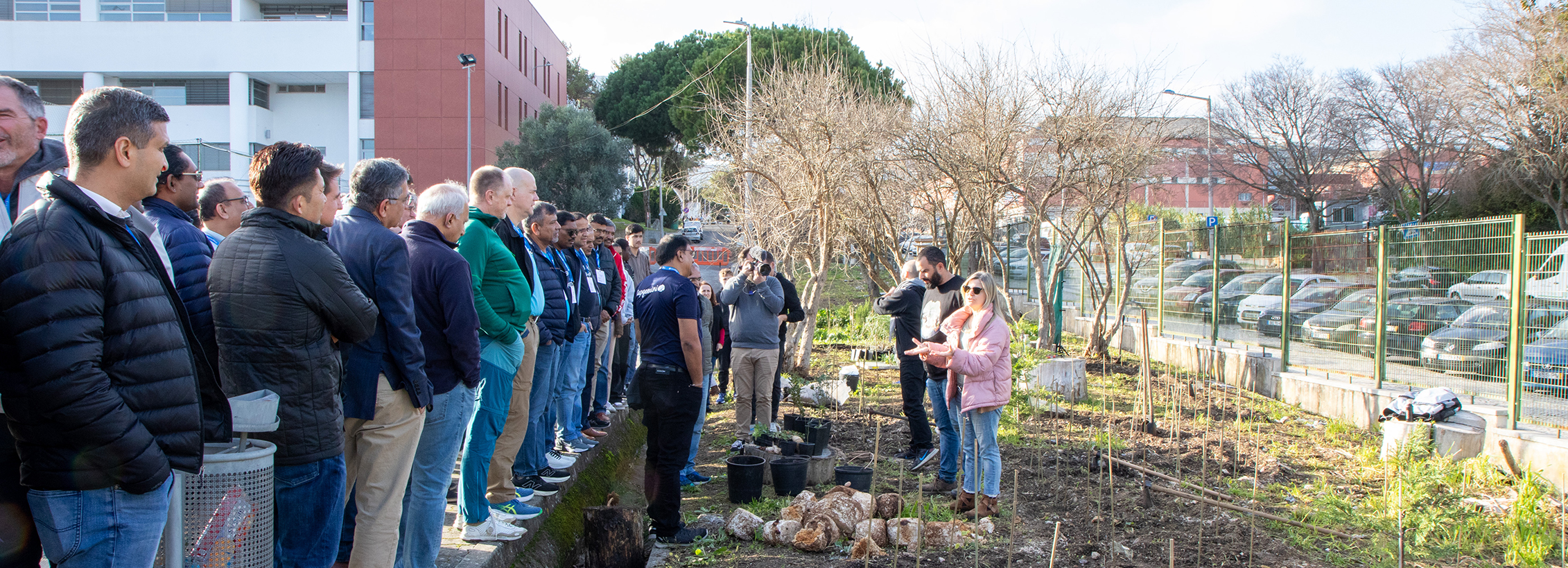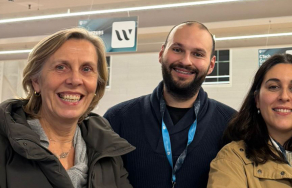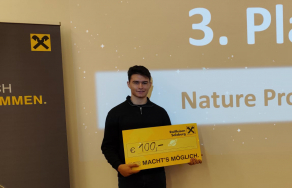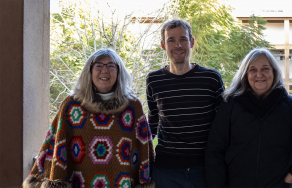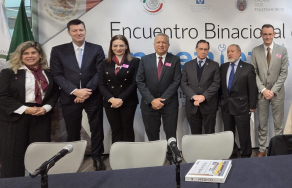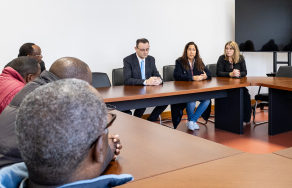On the 28th of January, another planting of an urban mini-forest (biodiversity island) was carried out at ISEL by the Miyawaki Method.
The planting was carried out in a gross area of about 150 m2 (next to the ISEL playing field), and a set of 150 native trees and shrubs were planted.
To carry out this activity, ISEL was sponsored by Capgemini International and supported and organized by Vítor Gordo (Biodiversity Islands project) together with Professor Alexandra Rodrigues (from DEM). The activity also had the technical-scientific support of Biologist Diogo Mendes from FCUL.
The planting activity was attended by about 50 directors of the company Capgemini International, coming from different parts of the world, as well as 3 teachers and 2 secondary school classes from the Baixa da Banheira and Vale da Amoreira school group, as well as 4 teachers from ISEL.
With the planting of another fast-growing mini-forest, on the ISEL campus, it is intended to promote the ability to capture carbon, purify the air, reduce the phenomenon of heat islands, restore ecosystems, promote biodiversity, assisting in the sustainable management of natural resources, such as water and soil, while creating green spaces that benefit the well-being of the local community.
This activity aimed to contribute to several SDGs, namely SDG 3 (promote health), SDG 6 (sustainable water management), SDG 11 (sustainable cities), SDG 13 (combat climate change), SDG 15 (protect life on land) and SDG 17 (SDG partnerships).

